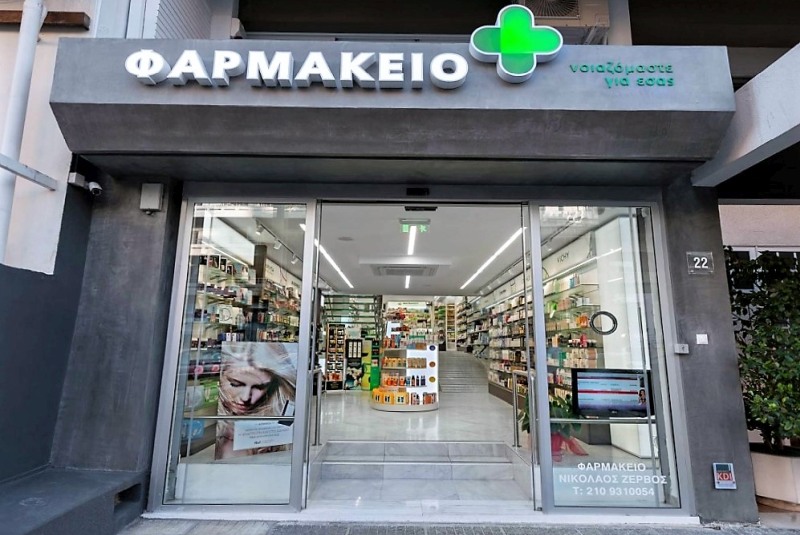



We Need Your Support!
We want to remind you that Athens by Locals is reader-supported. By booking tours, hotels, tickets, and other travel services through the links on our website, you can help us continue providing valuable content and information. Note that we receive a small commission only if you make a booking using our links at the time of your visit. So, if you're not quite ready to book yet, you can save this post and the links and return to make your booking when the time is right. We genuinely appreciate your support and are thrilled to have you in our travel community. Please don't hesitate to reach out if you have any questions or need assistance. Happy travels!
We here at Athens By Locals know very well that preparation for any trip begins with taking safety precautions, no matter how close or far from home. That’s why we decided to put together a small guide to explain the healthcare system in Athens and provide useful information regarding health issues and regulations in Greece and a few insider tips.
So, before you start packing your bags for your trip to Athens, go through the following tips to be as best prepared as possible for your upcoming trip.
The question regarding mandatory vaccines for traveling to Greece is the one that comes up most often by our readers.
So, let’s start with the most important: you should not fear catching a strange disease in Athens, Greece; therefore no vaccines are mandatory for your trip here.
However, as most international health organizations recommend, it is always beneficial to consider vaccinating for common diseases and secure your peace of mind.
The particular vaccinations that are recommended for traveling to Greece are listed below.
Here at Athens By Locals, we like to be very transparent about everything we do and very candid with our readers about why we do it.
Thus, we decided that presenting and constantly updating all relevant information regarding Greece’s most recent travel regulations during the COVID-19 pandemic would be difficult, time-consuming, and unwise, given that these regulations are changing almost daily.
Instead, we strongly recommend that you advise the official guidelines and regulations as presented by Greek authorities here.
The National Healthcare Service, also known as ESY, is responsible for all aspects of healthcare in Greece.
The healthcare system of Greece is a mixed one, which means that there are both public and private healthcare services throughout the country, with both the public sector and private insurance funds playing a significant role in its overall quality and readiness.
In general, even though the healthcare system of Greece has been facing serious challenges during the last years of the financial crisis that the country went into, the quality of its services is still considered to be quite high.
Residents of Greece (both natives and expats) who are registered in the social security system have the right to free or low-cost healthcare services, including medical examinations, lab exams, and prescribed medicine.
Unlike in other countries, patients can consult specialists directly at private offices, health centers, or hospitals without going through physicians for referrals.
However, remember that there are often long waiting lists, especially in rural areas such as the Greek islands. On the contrary, booking an appointment with any doctor in Athens should not be too much of a problem.
Apart from locals and expats, travelers from the EU can access public healthcare in Greece with an E111 card – the free European Health Insurance Card (EHIC).
If you are an EU resident traveling to Greece, you can apply for your European Health Card through your local authorities.
Bear in mind that this card is only valid in Greece for a limited period and is not valid at all at private hospitals or any other kind of health facility.
Yes. Even in more rural areas of Greece, medical personnel will most probably speak English at an adequate level to provide all necessary healthcare services.
Especially in Athens, you will have no trouble communicating with doctors, nurses, and administrative staff at the hospitals and health centers.
Private healthcare services in Greece are generally considered to be of higher quality than those of the public sector.
That may not be entirely true since it’s quite common for medical staff to work both in the public and private sectors.
Nevertheless, what is true is that having private insurance will guarantee that your name will not have to be included on a waiting list for you to make an appointment with a doctor or visit the hospital. Plus, private sector hospitals are known to have more modern equipment and better facilities.
Private healthcare services include all kinds of doctors (physicians and specialists), health centers, hospitals, and ambulatory care.
Athens being the capital city of Greece means that there are many hospitals scattered throughout the city center and the suburbs.
There are two kinds of hospitals in Greece general and specialized.
You can visit the former for any health issue, while the latter is for specific cases needing examination.
Below is a list of a few general and specialized hospitals in Athens along with their addresses.
Emergency care is completely free in Greece, and entirely funded by the state.
Any illness or injury that is considered life-threatening can be treated at any public hospital. In addition, you can use the hospitals’ ambulances to get there free of charge.
You can easily find pharmacies all around Athens. Like many other places, pharmacies in Greece have the typical green cross sign outside their entrance, so you will have no trouble locating them.

Pharmacies usually operate during normal business hours, but some remain open all night both on weekdays and weekends.
These are not always the same pharmacies. Instead, there is a certain schedule with the pharmacies that are designated to remain open at night each week, which you can find posted on the door of every pharmacy in the city.
If that looks confusing, you can always ask any local to help you out – ask about the pharmacies that are “efimerevonda”.
Most pharmacists in Athens speak English well enough to help you buy medicine or advise you on any minor health issue.
Remember that pharmacies are not allowed to sell medicine requiring a doctor’s prescription.
In addition, some kinds of medicine are not available altogether in Greece. For example, codeine, which is usually found in headache medicine, is banned in Greece.
It’s always best to ask your doctor for a certificate and/or prescription for every medication you carry with you into the country because strict regulations apply to importing medicines into Greece.
And a final tip: If you are wearing glasses or contact lenses, ensure you have an extra pair on your trip to Athens. Sometimes, ordering new ones may take longer than you would expect.
Make sure to note down and use these emergency numbers if you find yourself in any emergency while traveling in Athens.
Now that you have a grip on how healthcare services in Greece work and how you can access hospitals, specialist doctors, and emergency care, we’ll review a few useful tips to help you stay safe while traveling to Athens.
In Athens, tap water is drinkable and absolutely safe.
However, if you are planning to visit any Greek islands (even those in the Saronic Gulf that are only minutes away from Athens), make sure that you ask the locals about drinking tap water.
You can easily find bottled water (which is very affordable) anywhere in the country.
In any case, even if you do happen to drink tap water at a place you weren’t supposed to, the chances of facing a serious health issue are extremely low.
Food quality standards in Greece are very high, and you don’t need to take any special precautions while eating out anywhere in Athens – at least not any more than you would back home.
If you have a special diet or any allergies, make sure to inform the staff beforehand.
One of the biggest health issues you will have to face during your trip to Athens is protection from the sun and the heat, especially if you are traveling in the summertime.
Be sure to always carry sunscreen, sunglasses, a hat, and a few water bottles with you. You can find much more useful information on the weather in Athens here.
It’s very common to see many bugs and insects (primarily mosquitos) in Athens and its coastal areas.
Even though they will pose no real threat to your health, we recommend that you always keep an insect repellent close by to avoid having to deal with bites.
If you plan to visit the beaches at the Athenian Riviera or around Athens, swim only in designated swimming areas and have sunscreen, umbrellas, and sunglasses with you.
Also, keep in mind that jellyfish are quite commonly found in the sea. Make sure to have all the necessary medication with you for a trip to the sea.
If you have any respiratory problems such as asthma, you have to keep in mind that smoking is very common in Athens.
Even though smoking is now forbidden in all indoor places like cafes and restaurants, you’ll see many people smoking in the streets at alfresco cafes and even at bus stops.
In conclusion, we hope that this guide has provided all the information you need regarding the healthcare system in Athens and that it will come in handy when you start preparing for your trip. Keep our tips in mind; we are certain that you’ll keep safe and have a wonderful time in Athens.
A Quick Reminder:
Remember that Athens By Locals is here to guide you with planning the perfect trip to Athens and help you every step along the way. If you didn’t found what you’re looking for, or need any recommendations about your trip to Athens, feel free to contact us and we will do our best to help you. Please be as more detailed as possible regarding your subject so as to help you better.
If you like what you read please scroll down at the end of this page and subscribe to Athens By Locals so next time to receive more articles like this straight forward to your email. Join us on Facebook for comments, photos, and other fun stuff. If you enjoy this article please share it with your friends on Facebook.
Copyright © 2024 Athens By Locals © All rights reserved. No part of this site may be reproduced without our written permission.
Images owned by Athens By Locals. Image Banks or Companies promoted.